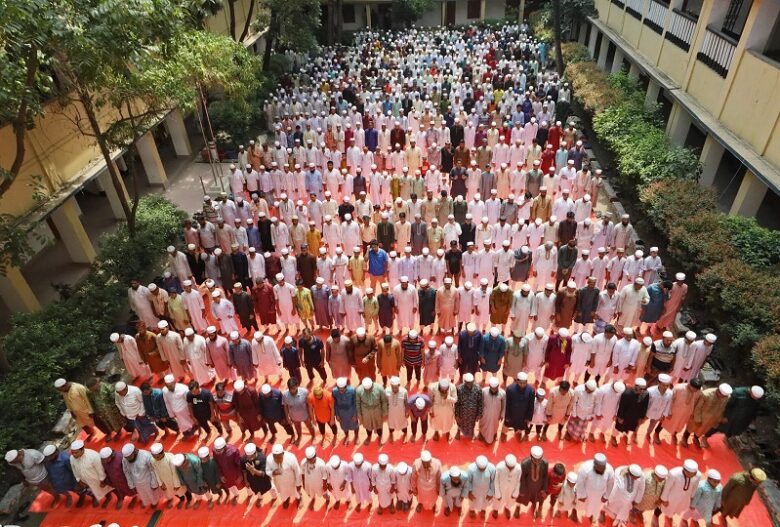Classes across Bangladesh have been cancelled due to searing heat, leaving high school students such as Mohua Akter Nur struggling to focus on schoolwork amidst soaring temperatures at home.
Millions of pupils were instructed to stay home this week as Bangladesh experiences one of its most severe heatwaves in history, with temperatures soaring 4-5 degrees Celsius (7.2-9 degrees Fahrenheit) above the long-term average.
Despite the lack of air conditioning in most schools in the capital Dhaka, attempting to hold classes would have been futile.
However, the government’s decision to close schools provided no relief to 13-year-old Nur.
In their cramped one-room home in the bustling megacity, shared with her younger brother and parents, the oppressive heat feels nearly as stifling as the scorching streets outside.
“The heat is unbearable. Even though our school is closed, I can’t focus on studying at home.
The electric fan doesn’t provide much relief,” she shared with AFP. “When the power went out for an hour or two, it was unbearable.”
INTOLERABLE
Nur’s mother, Rumana Islam, was lying in a corner of their home after a sleepless night, drenched in sweat from cooking for her family.
“Last year was hot, but this year is too hot – more than ever. Just unbearable,” she stated.
“In villages, you can step out and cool yourself under the shade of trees.
“There is some breeze coming from the farmland. But here in Dhaka, all you can do is sit at home.”
The relentless heatwave, with temperatures surpassing 42°C (108°F) in various parts of the country, has driven thousands of Bangladeshis to seek solace in mosques and open fields, praying for respite from the scorching conditions forecasted to persist through the weekend.
Authorities in Bangladesh anticipate reopening schools on April 28, aiming to resume normalcy before temperatures ease.
Scientific studies indicate that climate change is contributing to longer, more frequent, and more intense heatwaves.
The United Nations declared Asia as the most impacted region by climate and weather-related hazards in 2023, attributing floods and storms as the primary contributors to casualties and economic losses.
This week, millions of individuals in South and Southeast Asia endured another bout of exceptionally hot weather.
Bangladesh, with its population of 171 million, remains at the forefront of the global climate crisis, frequently facing powerful cyclones and escalating floods in terms of both frequency and intensity.
LIKE YOU ARE BURNING
The recent surge in extreme weather has led to an uptick in diarrhea cases in the southern region of the country, attributed to elevated temperatures and the consequent rise in salinity levels in local water sources.
Amidst the tenement building where Nur’s family resides, along with numerous other low-income households, adults sought to alleviate the oppressive heat by dozing intermittently in their homes throughout the afternoon.
“The heat is so extreme that it’s challenging to be out driving in this weather,” remarked Mohammad Yusuf, a 40-year-old who, like Nur’s father and many others in their community, earns a living as a driver.
“You can get some respite when the air conditioner is on,” he said. “But when you are outside, it feels like you are burning”
AFP
YOU MAY ALSO READ: Concerns as African economies lose $13.7bn to adverse climate events









Got a Question?
Find us on Socials or Contact us and we’ll get back to you as soon as possible.